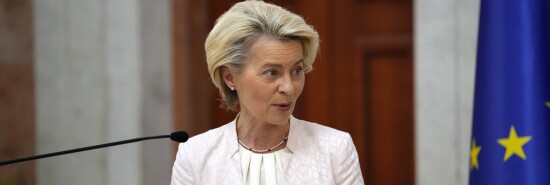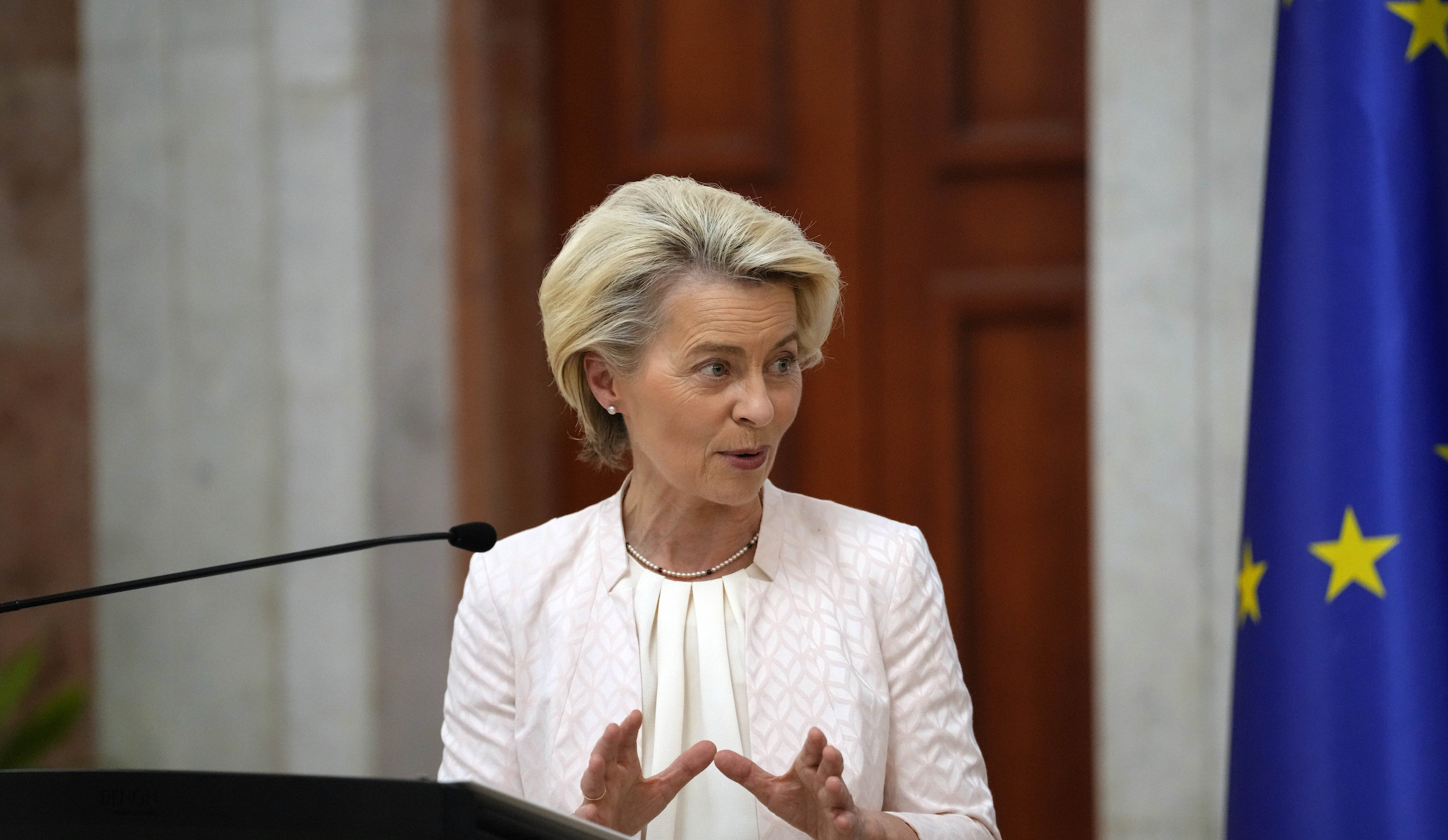
EU president backs long-range missiles for Ukraine
Joel Gehrke
Video Embed
Western powers should supply Ukraine with “long-range” weaponry, according to the European Union’s top official, who offered the recommendation as Germany weighs a new request from Kyiv.
“The immediate need — you know it — is the military assistance to sustain the efforts of the Ukrainian armed forces,” European Commission President Ursula von der Leyen said Wednesday. “And those who can should provide long-range artillery and weapons systems that can help Ukraine level the battlefield gap in range to the invading forces.”
BIDEN WORKS TO PUSH DEBT CEILING DEAL OVER THE FINISH LINE
Ukrainian President Volodymyr Zelensky has sought long-range weaponry for months, as U.S.-provided artillery systems reportedly have been modified to fire only limited-range munitions out of a seeming fear of escalation with Russia. British Prime Minister Rishi Sunak approved a transfer of long-range British missiles, however, and von der Leyen’s exhortation adds political weight in Brussels to that precedent.
“Putin wanted to grab Ukraine for Russia,” she told a conference hosted by GLOBSEC, a leading foreign policy think tank in Bratislava. “He calculated that the European Union would just accept it. Instead, Ukraine resisted bravely and is beating him back. And we in Europe, rightly and steadfastly, stand with Ukraine.”

Von der Leyen, a former German defense minister, has emerged as a locus of hard-line opposition to China and Russia in continental Europe. She urged European leaders to take a “sober assessment” of Chinese General Secretary Xi Jinping’s ambition for “China to become the world’s most powerful nation,” and offered a marked contrast with French President Emmanuel Macron’s tone on Taiwan when the two European leaders took overlapping trips to China last month.
And she has drawn applause in Europe for helping orchestrate the EU’s decision to extend a formal invitation of membership to Ukraine last year, after Russian President Vladimir Putin launched his campaign to overthrow Zelensky, over the perceived misgivings of Germany.
“That was her fight,” Lithuania Foreign Affairs Committee Chairman Zygimantas Pavilionis, a former ambassador to the United States, said Wednesday at the forum. “Berlin made that fight … and she won it. She did something that NATO didn’t.”
Pavilionis has been an arch advocate of extending Ukraine’s admission into NATO at an upcoming summit amid a trans-Atlantic debate about how to ensure Ukraine’s long-term security against Putin’s imperialist ambitions.
“We should stop with our policies of giving him veto power on our enlargement,” he said, referring to Western hesitance to follow through on the 2008 Bucharest Summit pledge that Ukraine would eventually be admitted into the security alliance. “We should stop with our policies of giving him veto power on our enlargement because … [by] not implementing the decision, we say that the Ukrainians are in the sphere of influence of [the] Russians.”
Pavilionis asserted that the talk of ad hoc “security guarantees” short of NATO membership “means the same.” Von der Leyen, as an EU leader, acknowledged that debate in her own address but prioritized expanding the military assistance to Ukraine rather than membership in the other major transatlantic organization.
“A collection of such guarantees by like-minded states can offer what some have called ‘deterrence by denial,’” she said. “In other words, providing Ukraine with the military equipment to fortify itself against Russian attacks in the future.”
Her recommendation comes just days after German officials acknowledged that Ukraine has requested long-range missiles from Berlin.
“Ukraine’s partners must now go ‘all in’ and provide Ukraine with everything that Ukraine can use in combined arms combat and that is permissible under international law,” German opposition lawmaker Roderich Kiesewetter said last week. “Taurus cruise missiles with a range of up to 400 to 500 kilometers would be a very helpful contribution from Germany. … There must be no more red lines here.”
CLICK HERE TO READ MORE FROM THE WASHINGTON EXAMINER
The appeal to Germany to follow the United Kingdom’s example follows the pattern set when German Chancellor Olaf Scholz finally agreed to transfer main battle tanks to Ukraine in January. In that case, however, Scholz resisted until President Joe Biden agreed that the United States would give American tanks to Ukraine later in the year. (Zelensky has requested long-range munitions known as ATACMS from the United States to no avail so far.)
“I think Europeans can actually pilot, can actually push Americans into getting more involved,” said French lawmaker Benjamin Haddad, who appeared at GLOBSEC on a panel alongside Pavilionis. “I think we don’t have to wait for the U.S. to take initiative. I think, actually, we can be a little forward leaning on this.”
